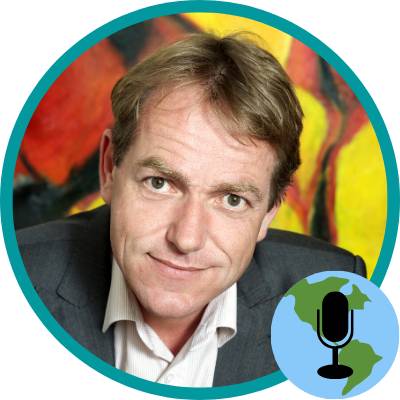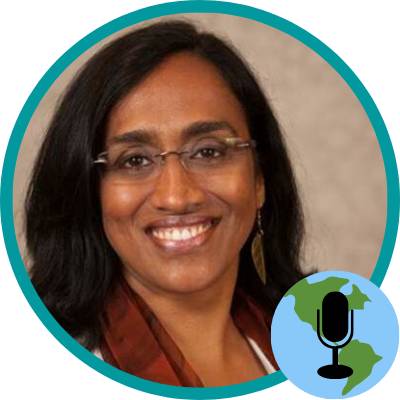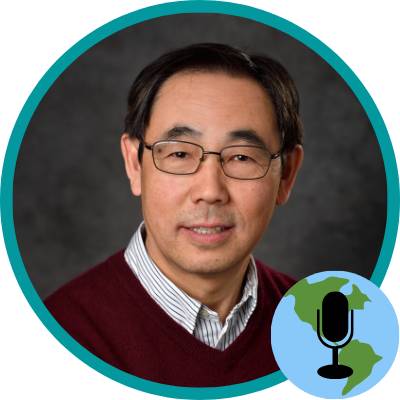CCESS 2020 Speakers


Jos Eussen
In the realm of Climate Change and Sustainable Development at large, Jos will re-honour the field of Environmental Education ESD heavy borrows from, approach industry as a joint cause of unsustainable consumption and invite for its indispensable contribution to education, defragment contemporary illusions brought forward as ‘Whole School Approach’, ‘Deep Learning’ and ‘21st Century Skills’, address the lack of progress in initial Teacher Training and roast the academic arrogance which took hostage of ESD while it belongs to the community, for it has only one and most magnificent goal – enabling our Youth to understand this world and its people to the effect they can become the entrepreneurs and owners of their and our joint more sustainable future.
OPEDUCA
The OPEDUCA Concept is thus far the only approach which meets the entire breadth and depth of UNESCO’s ESD for 2030. Being developed and tested in practice between 2007 and 2017 by a collaborative of over 4.200 scholars, teachers, school leaders, industry managers and experts in environmental education, the concept offers a pedagogy and instruments which are found applicable in over 20 countries worldwide with different cultures, beliefs and national structures.
Basing the entire educational system, primary up to and including higher education, on Sustainable Development instead of positioning ESD as add-on, as is the case in all known contemporary practice, the concept sees to a continuous learning process which meets every curriculum-requirement and bridges the worlds of schooling and work. The learning being situated in the local realm, it re-invigorates community life and social cohesion, manifesting ‘Open Educational Areas’ where indigenous knowledge meets educational values and expertise from the present, from there bringing people and organisations together most practical and effective in a local-to-global learning sphere where not only schools but also every other sector in society can find cooperation for the joint cause of ESD.
The pedagogy combines and merges deductive and inductive theories, constructivist learning and expert instruction, sees to transdisciplinary education in the core of schooling and integrates all thus far separately prioritized educations in the field of STEM, ICT, Globalisation, Culture, the Arts and Environment. As it further generates true OERs, the concept substantially increases schools’ effectiveness and efficiency, generating increased access to education and also therewith addresses the challenge of inequality most prominently.

Shaily Menon
My work in the college, university, and the community is fueled by my conviction in the value of a liberal education for students and for society. I am committed to the ideals of an engaged university, collaborative and interdisciplinary problem-solving, fostering innovation and entrepreneurship, advancing underrepresented groups, and translating my passion for helping institutions of higher education respond to the needs of their students and of local and global communities.
My teaching and research has been in:
- environmental ethics
- conservation biology
- global change
- systems dynamics
- spatial modeling
I have worked on collaborative and interdisciplinary research with students, faculty, and non-profit organizations locally and internationally. Global change and declines in biodiversity underscore the need to understand mechanisms regulating the distribution of species and ecosystems.
My research has been in the areas of conservation biology and biodiversity informatics in the context of global change (climate change, sea-level change, and land-use change). My work has applied spatial databases, biodiversity informatics, and ecological niche modeling to aid the discovery of endangered or rare species, model the spread of invasive species, and predict the effects of land change, climate change, and sea-level change on species' and ecosystem distributions.
As Dean of the College of Arts and Sciences, at Saint Joseph's University, I am working on several interdisciplinary and innovative programs, including a Biotech Incubator Program, Social Innovation Fellows Program, and supporting the development of curricular programs in Computational Engineering and Applied Physics, Cybersecurity, Data Sciences, GIS and Location Intelligence, and Global Studies.

Jiaguo Qi
Dr. Jiaguo Qi (pronounced Chee) is Director of the Center for Global Change and Earth Observations, and Professor at Michigan State University’s Department of Geography. As a professor, Dr. Qi has a broad interest in global change with a focus on complex interactions among land, water, climate and society using process-based models, geospatial technologies, and in-situ and remote observations.
His research includes: remote sensing and geospatial technologies; environmental monitoring, assessment and modeling; land use and land cover change dynamics; and decision support systems for agriculture and rangeland. Over the past two decades, he: developed geospatial modeling tools to guide rangeland and cropland management; incorporated satellite-based biophysical attributes to improve climate modeling and predictions; integrated land use and land cover information in biogeochemical models to better understand the role of land in global change processes; applied geospatial technologies to characterize landscape patterns for large scale ecological assessment; and developed innovative ways of using geospatial technologies for improved cropland change detection and production estimation.
His recent research efforts center on a WEF (water-energy-food) Nexus framework to integrate land, humans, environment and climate change for sustainable development in developing countries in Southeast Asia, Central Asia and East Africa. As director, Dr. Qi has led the Center for Global Change & Earth Observations in several large-scale research efforts to assess the impacts of climate change and human activities on ecosystem services, including carbon sequestration, food production, and water resources. By integrating physical processes, human interventions and ecosystem services, the Center generates innovative ways to understand coupled natural and human systems.
As the director of the Office of China Programs at Michigan State University, Dr. Qi is leading a major effort to establish an Asia Hub initiative in China to promote innovative international partnerships and collaboration with institutions in China, Central Asia and Southeast Asia. He obtained funding from Nanjing Agricultural University to implement the Asia Hub on the WEF Nexus and Agricultural Science, organized a series of workshops in Southeast Asia and built a regional network focusing on interactions and synergies among water, energy and food systems in the region. Internationally, Dr. Qi is the co-director of the North American Nodal Office of Global Land Programme, located at Michigan State University. At the same time, he serves in numerous international programs and projects, including: MAIRS Project Scientist of the NASA’s LCLUC Program, liaison for the NEESPI program for China, lead scientist of the Central Asia Regional Information Network (CARIN) and MekRIN (Mekong Regional Information Network) under the GOFC-GOLD program.
This event is sponsored by the GVSU College of Liberal Arts and Sciences, Regional Math and Science Center, Geography and Sustainable Planning Department, the GVSU Career Center, and the Office of Sustainable Practices.
For more information, please contact the CCESS Planning Committee Chair, Dr. Elena Lioubimtseva at [email protected].
